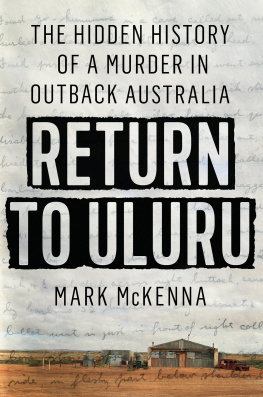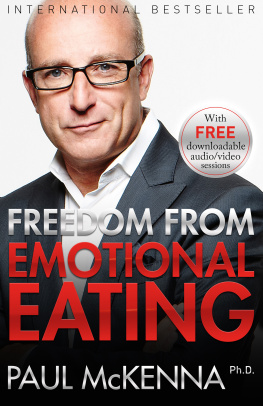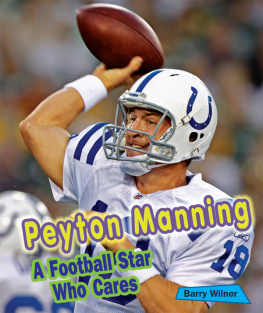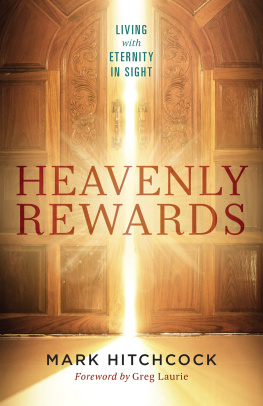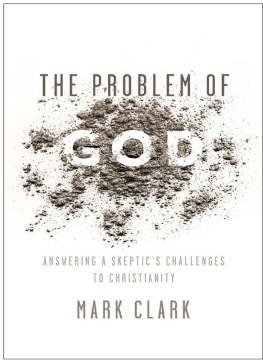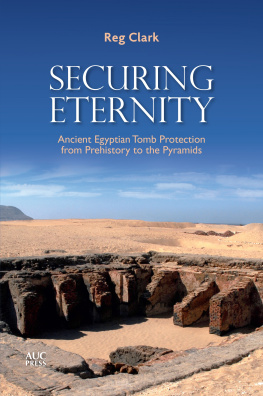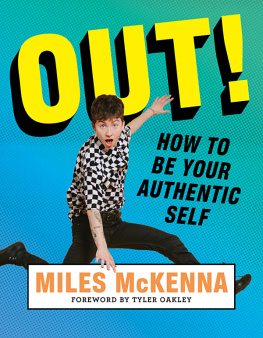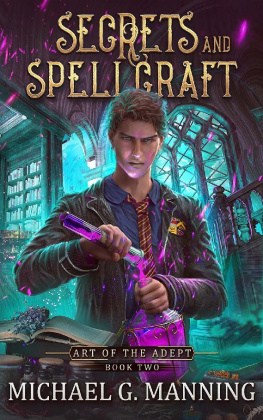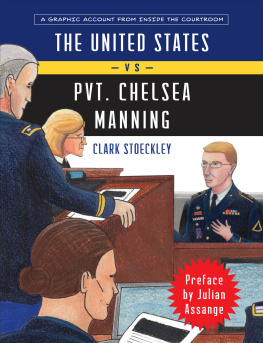Mark Mckenna - An Eye for Eternity: The Life of Manning Clark
Here you can read online Mark Mckenna - An Eye for Eternity: The Life of Manning Clark full text of the book (entire story) in english for free. Download pdf and epub, get meaning, cover and reviews about this ebook. publisher: Melbourne University Publishing, genre: Detective and thriller. Description of the work, (preface) as well as reviews are available. Best literature library LitArk.com created for fans of good reading and offers a wide selection of genres:
Romance novel
Science fiction
Adventure
Detective
Science
History
Home and family
Prose
Art
Politics
Computer
Non-fiction
Religion
Business
Children
Humor
Choose a favorite category and find really read worthwhile books. Enjoy immersion in the world of imagination, feel the emotions of the characters or learn something new for yourself, make an fascinating discovery.

- Book:An Eye for Eternity: The Life of Manning Clark
- Author:
- Publisher:Melbourne University Publishing
- Genre:
- Rating:3 / 5
- Favourites:Add to favourites
- Your mark:
- 60
- 1
- 2
- 3
- 4
- 5
An Eye for Eternity: The Life of Manning Clark: summary, description and annotation
We offer to read an annotation, description, summary or preface (depends on what the author of the book "An Eye for Eternity: The Life of Manning Clark" wrote himself). If you haven't found the necessary information about the book — write in the comments, we will try to find it.
Mark Mckenna: author's other books
Who wrote An Eye for Eternity: The Life of Manning Clark? Find out the surname, the name of the author of the book and a list of all author's works by series.
An Eye for Eternity: The Life of Manning Clark — read online for free the complete book (whole text) full work
Below is the text of the book, divided by pages. System saving the place of the last page read, allows you to conveniently read the book "An Eye for Eternity: The Life of Manning Clark" online for free, without having to search again every time where you left off. Put a bookmark, and you can go to the page where you finished reading at any time.
Font size:
Interval:
Bookmark:
THE MIEGUNYAH PRESS
THE GENERAL SERIES OF THE
MIEGUNYAH VOLUMES
WAS MADE POSSIBLE BY THE
MIEGUNYAH FUND
ESTABLISHED BY BEQUESTS
UNDER THE WILLS OF
SIR RUSSELL AND LADY GRIMWADE.
MIEGUNYAH WAS THE HOME OF
MAB AND RUSSELL GRIMWADE
FROM 1911 TO 1955.
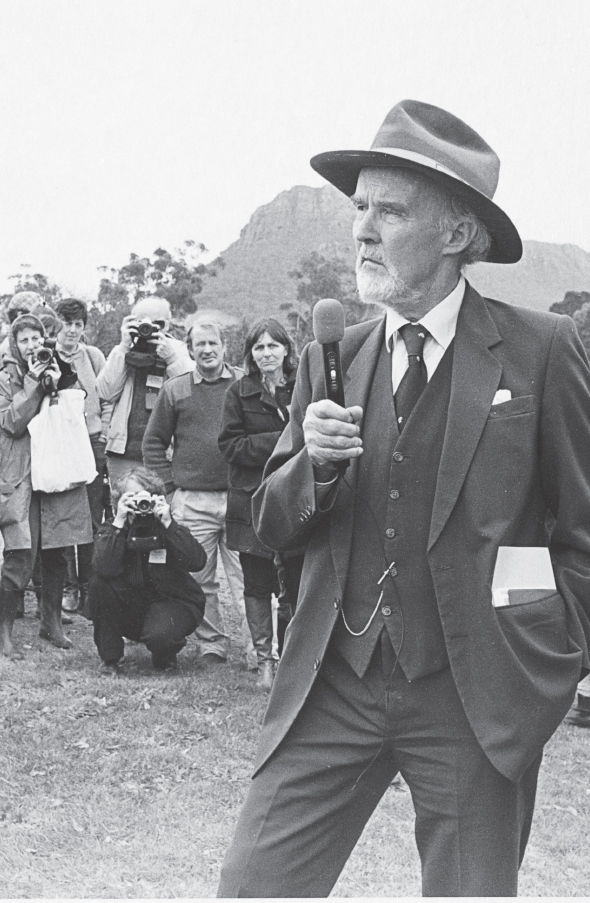

An Eye for Eternity
The life of
MANNING
CLARK
MARK McKENNA

For Fiona, Siobhan and Claire McKenna
THE MIEGUNYAH PRESS
An imprint of Melbourne University
Publishing Limited
Level 1, 715 Swanston Street, Carlton,
Victoria 3053, Australia
www.mup.com.au

First published 2011
Reprinted 2011
Revised edition published 2015
This edition published 2020
Text Mark McKenna, 2011
Design and typography Melbourne
University Publishing Limited, 2011
This book is copyright. Apart from any use permitted under the Copyright Act 1968 and subsequent amendments, no part may be reproduced, stored in a retrieval system or transmitted by any means or process whatsoever without the prior written permission of the publishers.
Every attempt has been made to locate the copyright holders for material quoted in this book. Any person or organisation that may have been overlooked or misattributed may contact the publisher.
Designed by Pfisterer + Freeman
Typeset by Pfisterer + Freeman
Cover photo courtesy of Heide Smith, 1989
Printed by McPhersons Printing Group in Australia

9780522877090 (paperback)
9780522862645 (ebook)
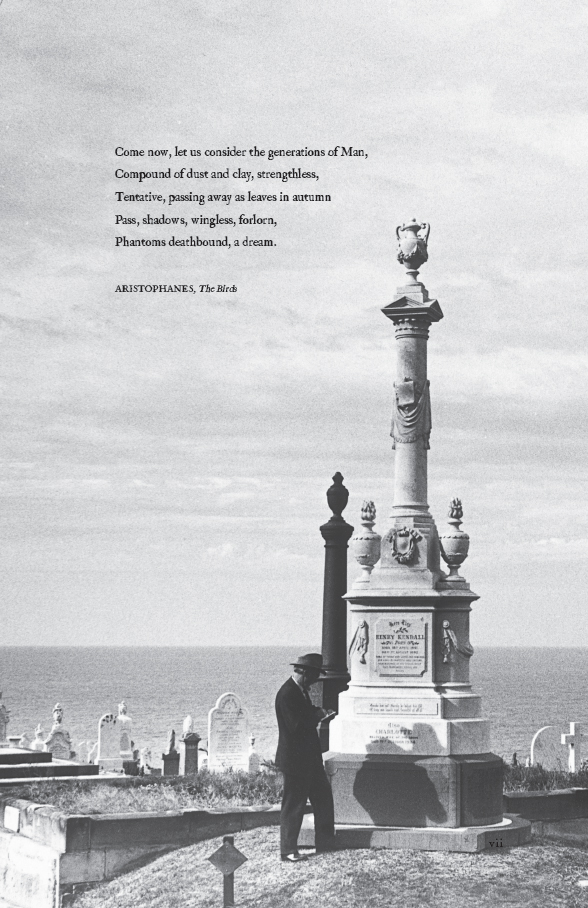
CONTENTS
PREFACE
This is the third edition of An Eye For Eternity, which was first published in 2011. Although nearly a decade has passed since then, my relationship with Manning Clark is very much alive. I can still see him at his desk, ink pen in hand, writing his six-volume A History of Australia. I still remember too many things that he said and I still hear his voice.
Whenever I visit Clarks former family home in Canberra, now Manning Clark House, Im reminded that I know its design and ambience as intimately as my own home; the three steps that lead up to the old wood stove in the kitchen, the modest bathroom and bedrooms, the narrow wooden ladder that climbs to Clarks loft study, his collection of vinyl records, antique furniture and Australian art, the Japanese maple that brushes up against the enormous glass window in the living room, and the play of sunlight that floods the vestibule at midday. After the seven years I spent researching and writing his life, Clark got under my skin and stayed there.
The period since the publication of An Eye for Eternity has shown me how the connection between biographer and subject can last a lifetime. More than any other form of literature, biographies cling to their authorsbecome part of their very DNAlong after publication. The years of intensive research embed biographers in the family and friendship networks of their subjects. For better or worse, they often end up knowing more about the private lives of their subjects than theyd ever intended or wanted to know; knowledge which carries with it a heavy ethical responsibility.
While I have read every word of Clarks voluminous correspondence and diaries that were written over more than fifty years, none of his children or grandchildren have done so. And I understand why. How many of us, after all, would prefer to leave our image of our parents or loved onesfashioned from the fluidity and touch of life itself rather than words on the pageundisturbed? The readers desire to know everything is not necessarily shared by the subjects family or friends. Clarks eldest son and literary executor, Sebastian, who is writing a memoir of his dear father, cannot bring himself to read Clarks diaries.
The dilemma I faced while writing An Eye for Eternity was the struggle faced by every biographer: to reconcile intimacy and distance and to separate my subjects voice from my own. There was no alternative. If I was to write Clarks biography, I had to wrest control of the story of his life from his own voice. If I was to do more than simply relay his telling of his lifea story that he never tired of tellingI had to come as close to him as possible yet remain far enough apart. I wanted to achieve what renowned biographer Brenda Niall sees as the biographers mission: an act of imaginative and creative sympathy rather than romantic identification or possession. That journey, which I thought I had completed in 2011 with publication, continues to unfold today.
Im still in contact with some of Clarks friends, associates and family. Some family members, like Sebastian Clark, have become friends. Historians, journalists and writers who have Clark-related queries regularly get in touch. If new material suddenly comes to lightcorrespondence, a public broadcast that was thought lost, the latest essay or article related to Clarks legacy, a stray anecdote or a personal recollection often sparked by someone reading the bookIm usually the first to know. I might have moved on to write about other subjects, but Ive never stopped being Manning Clarks biographer.
Im often asked if Ill write another biography. While I miss many aspects of my life as Clarks biographer, especially the privilege of interviewing more than one hundred of his former friends and colleagues, I doubt Ill ever find another subject to equal him. Writing An Eye for Eternity, I came to see that there was something that transcended even the weight of Clarks scholarship and the substantial impact of his public life. On a human level aloneas child, adolescent, lover, friend and fatherhis life was lived and remembered with such an acute theatrical sensibility that it spoke to readers regardless of their gender, cultural background or nationality. Clarks life contained contradictions numerous and large enough for all of us to recognise shards of our own experience. It was both Australian and universal.
My admiration for Clarks extraordinary contribution to Australia, both as historian and public intellectual, only increased the further I immersed myself in the story of his life. I gradually saw that his was one of Australias great lives, a life given over to public examination in a way that few of us would dare contemplate. As time has passed, I have become even more convinced of Clarks pivotal importance to Australian culture.
Clark was born only seven weeks before Australian soldiers landed at Anzac Cove on 25 April 1915. His life was framed by the great ideological struggle of the twentieth century, which began with the Russian Revolution in 1917 and ended with the fall of the Berlin wall in 1989. By the time of his death on 23 May 1991, he had also witnessed the slow yet inexorable decline of the British connection in Australia. Clark not only wrote a history of Australia that took twenty-five years to complete (196287), he changed the way Australians perceived their past. Through his writings and his many public contributions over more than five decades, Clark helped to destroy the belief that Australian history was merely a dull, insignificant appendage to British imperial history. He showed us that our past mattered. It explained who we were, and it was no less epic, mysterious or haunting than the history of other nations.
Next pageFont size:
Interval:
Bookmark:
Similar books «An Eye for Eternity: The Life of Manning Clark»
Look at similar books to An Eye for Eternity: The Life of Manning Clark. We have selected literature similar in name and meaning in the hope of providing readers with more options to find new, interesting, not yet read works.
Discussion, reviews of the book An Eye for Eternity: The Life of Manning Clark and just readers' own opinions. Leave your comments, write what you think about the work, its meaning or the main characters. Specify what exactly you liked and what you didn't like, and why you think so.

